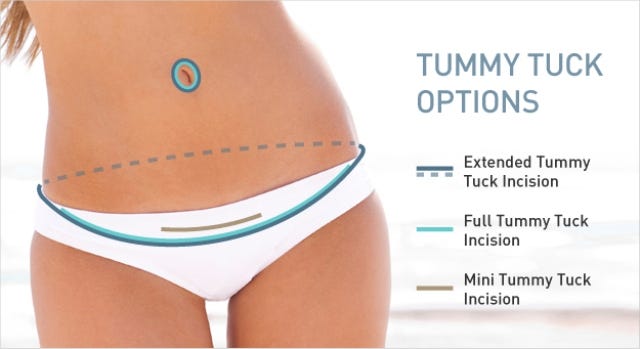Choosing the right tummy tuck in Riyadh is a critical decision that will significantly impact your safety, the quality of your results, and your overall experience. With a growing number of clinics and surgeons in the city, knowing what to look for will help you make an informed choice.

Here's a comprehensive guide to selecting the best tummy tuck doctor in Riyadh:
1. Verify Board Certification and Qualifications
This is the most crucial step. A plastic surgeon's credentials indicate their training, expertise, and commitment to patient safety.
- Board Certification: Ensure the surgeon is board-certified by a recognized national or international plastic surgery board, such as the Saudi Commission for Health Specialties (SCFHS) for local surgeons, or American Board of Plastic Surgery, Royal College of Physicians and Surgeons of Canada (FRCSC), or European Board of Plastic, Reconstructive and Aesthetic Surgery (EBOPRAS) for internationally trained surgeons. Board certification means they have completed rigorous training, passed comprehensive exams, and adhere to strict ethical and safety standards.
- Specialization in Plastic Surgery: Confirm that their primary specialization is plastic surgery, not just general surgery with a "cosmetic" interest. Plastic surgeons undergo dedicated training in aesthetic and reconstructive procedures.
- Additional Fellowships or Training: Some surgeons pursue additional fellowships in specific areas like body contouring or post-bariatric surgery, which can be a significant advantage for complex tummy tuck cases.
2. Assess Experience and Expertise
Experience matters greatly in plastic surgery, particularly for a nuanced procedure like a tummy tuck.
- Years in Practice: While a new surgeon might be talented, a surgeon with many years of experience (e.g., 5-10+ years specifically in plastic surgery) has likely encountered a wider range of cases and refined their techniques.
- Focus on Abdominoplasty: Ask how many tummy tucks they perform annually. A surgeon who frequently performs this procedure will have a deeper understanding of the nuances and potential challenges.
- Types of Tummy Tucks: Inquire about their experience with different types of tummy tucks (mini, full, extended, circumferential, lipoabdominoplasty). This ensures they can recommend and perform the best procedure for your specific needs.
- Before and After Photos: Crucially, request to see their personal portfolio of before-and-after photos of previous tummy tuck patients. Look for:
- Results that align with your aesthetic goals.
- Consistency in results across different patients.
- Photos taken from various angles and with consistent lighting.
- Long-term results (e.g., 6 months to 1 year post-op) to see how scars have healed and swelling has subsided.
- Patients with similar body types to yours.
3. Evaluate Clinic Accreditation and Safety Standards
The facility where your surgery is performed is as important as the surgeon.
- Accreditation: Ensure the surgical facility (clinic or hospital) is accredited by a recognized body, such as the Joint Commission International (JCI) or a local equivalent. Accreditation signifies adherence to high safety, hygiene, and patient care standards.
- Operating Room Standards: Inquire about the operating room facilities, equipment, and emergency protocols. A reputable clinic will have a fully equipped surgical suite.
- Anesthesia Provider: Confirm that the anesthesia will be administered by a qualified, board-certified anesthesiologist, not just a technician.
4. Prioritize Communication and Patient Care
A good rapport with your surgeon and their team is essential for a positive experience.
- Thorough Consultation: Does the surgeon listen attentively to your concerns and goals? Do they explain the procedure clearly, including potential risks and complications, recovery process, and realistic outcomes?
- Clear Communication: Are your questions answered comprehensively? Do you feel comfortable asking sensitive questions? A good surgeon will ensure you are fully informed and at ease.
- Personalized Approach: Does the surgeon offer a customized treatment plan based on your unique anatomy and goals, or do they seem to offer a "one-size-fits-all" solution?
- Aftercare Plan: A reputable surgeon will provide a detailed post-operative care plan, including instructions for wound care, medication, activity restrictions, and scheduled follow-up appointments. Inquire about their availability for concerns during recovery.
- Team Support: Assess the professionalism and helpfulness of the entire clinic staff, including nurses and administrative personnel.
5. Consider Patient Reviews and Testimonials
While not the sole factor, patient reviews can offer valuable insights into others' experiences.
- Online Reviews: Check platforms like Tebcan, Google Reviews, RealSelf, or clinic-specific social media pages. Look for consistent themes in positive or negative feedback.
- Focus on Relevant Experiences: Pay attention to reviews specifically about tummy tucks.
- Word-of-Mouth: Ask for recommendations from friends, family, or your general practitioner if they have positive experiences with plastic surgeons in Riyadh.
6. Transparency in Pricing
While cost shouldn't be the only determining factor, clear pricing is a sign of a professional practice.
- Detailed Breakdown: Ensure you receive a comprehensive quote that itemizes all costs: surgeon's fee, anesthesia fee, facility fee, compression garments, and follow-up appointments. Avoid clinics that are vague about pricing or have hidden fees.
- Value vs. Price: Remember that the cheapest option is rarely the best in cosmetic surgery. Prioritize safety and quality over a low price.
By diligently applying these criteria, you can significantly increase your chances of choosing a highly qualified and trustworthy tummy tuck doctor in Riyadh, leading to a safer procedure and a more satisfying aesthetic outcome.




Comments